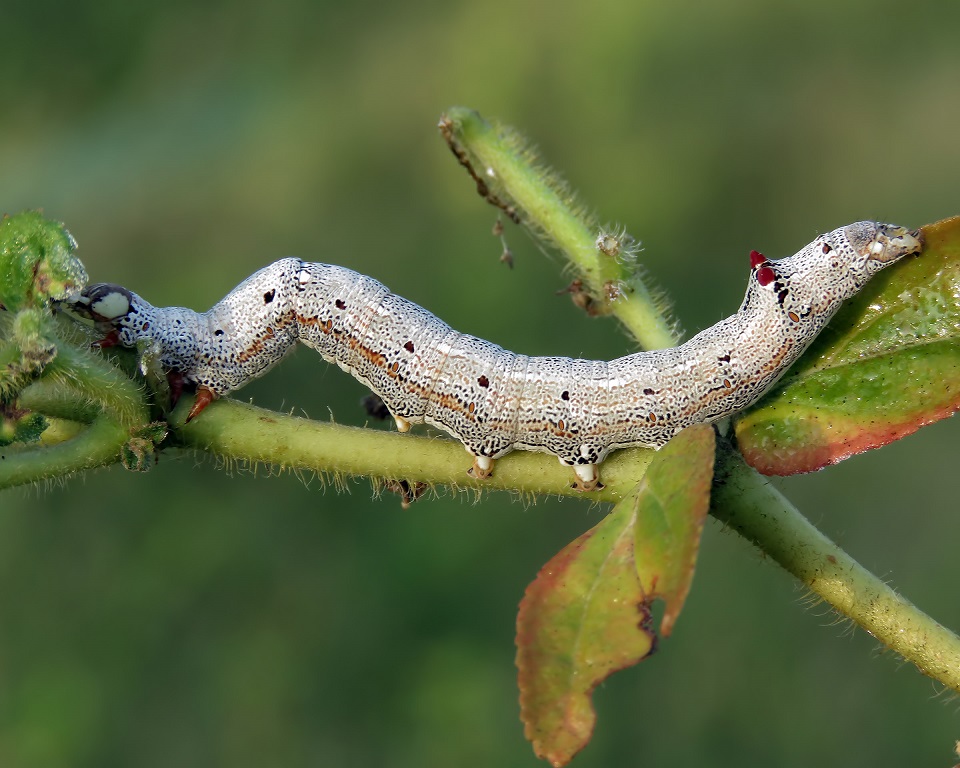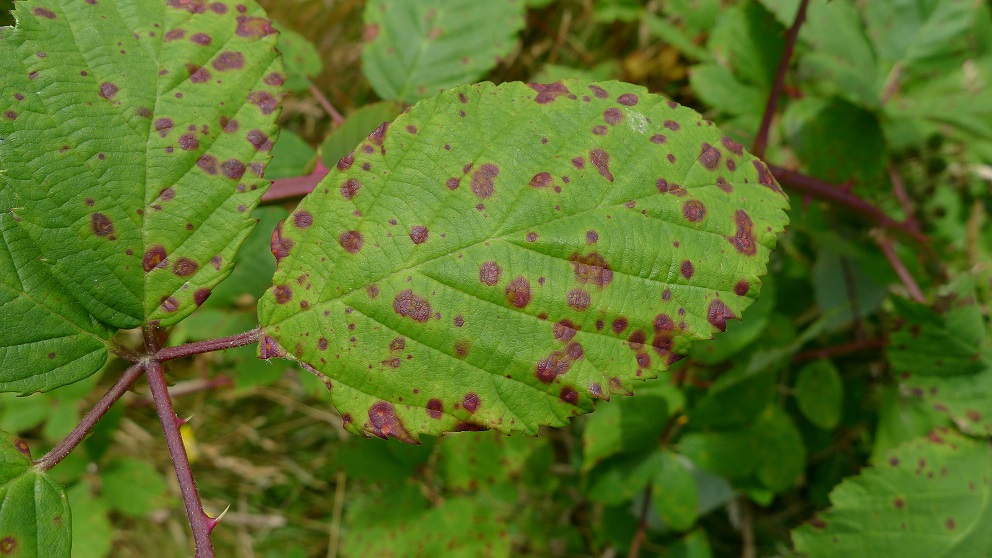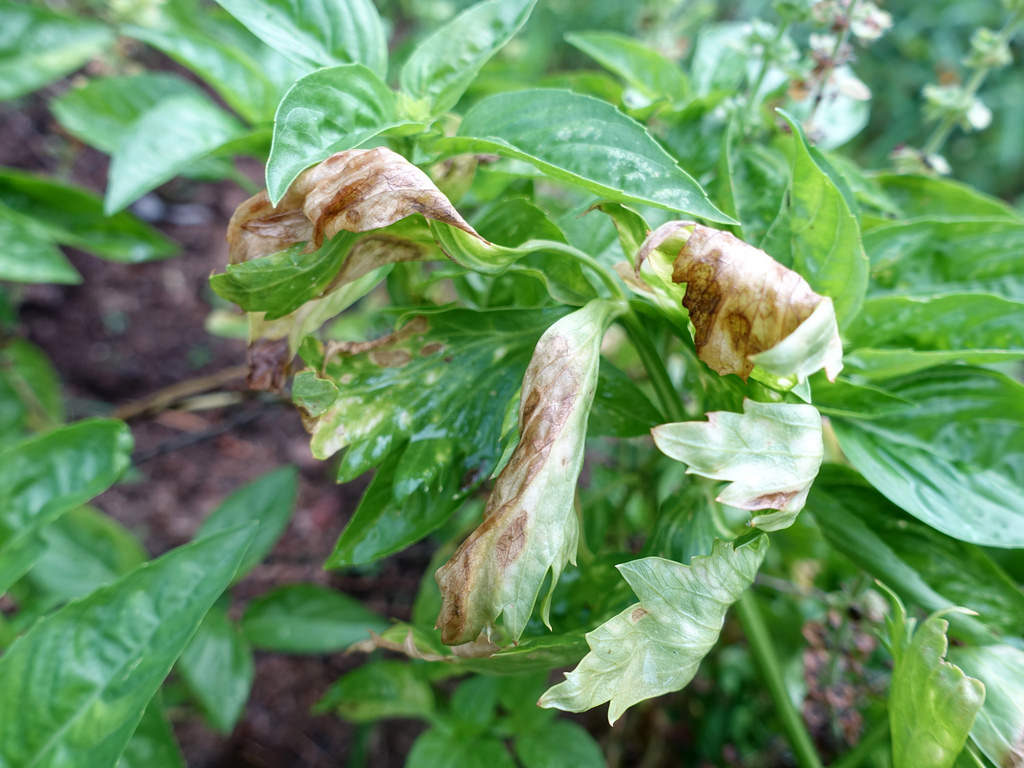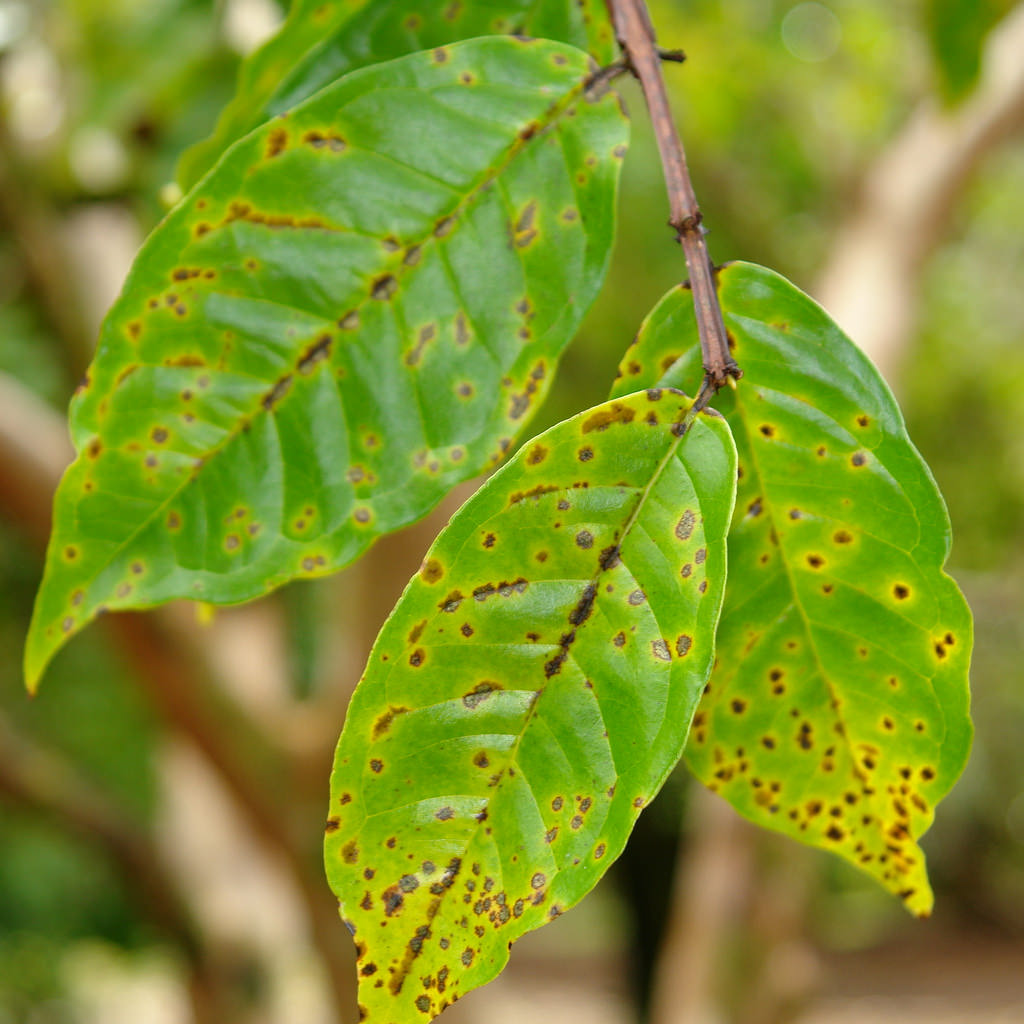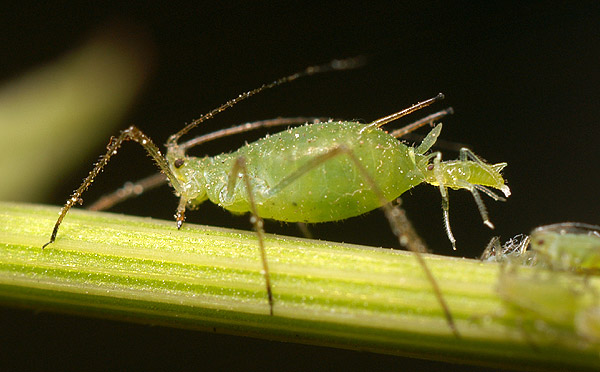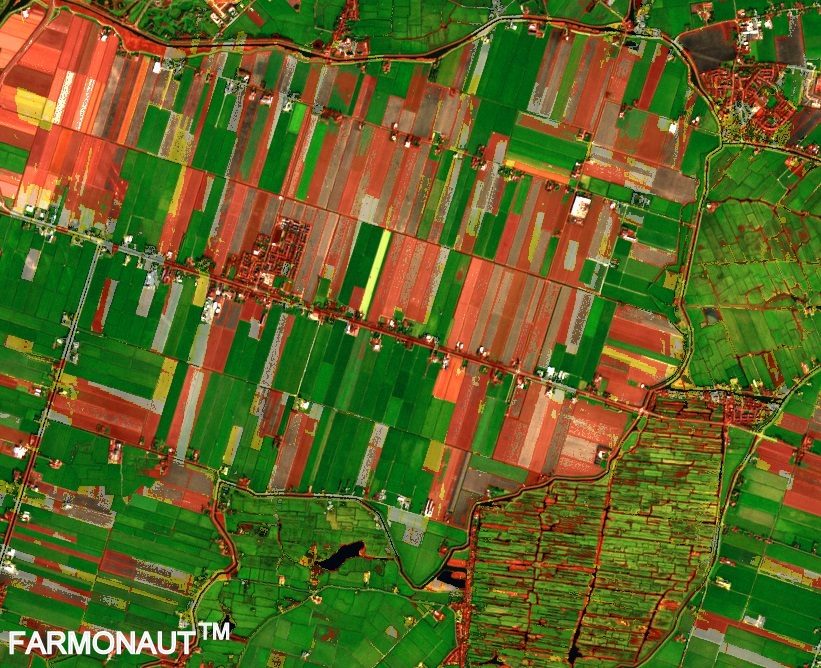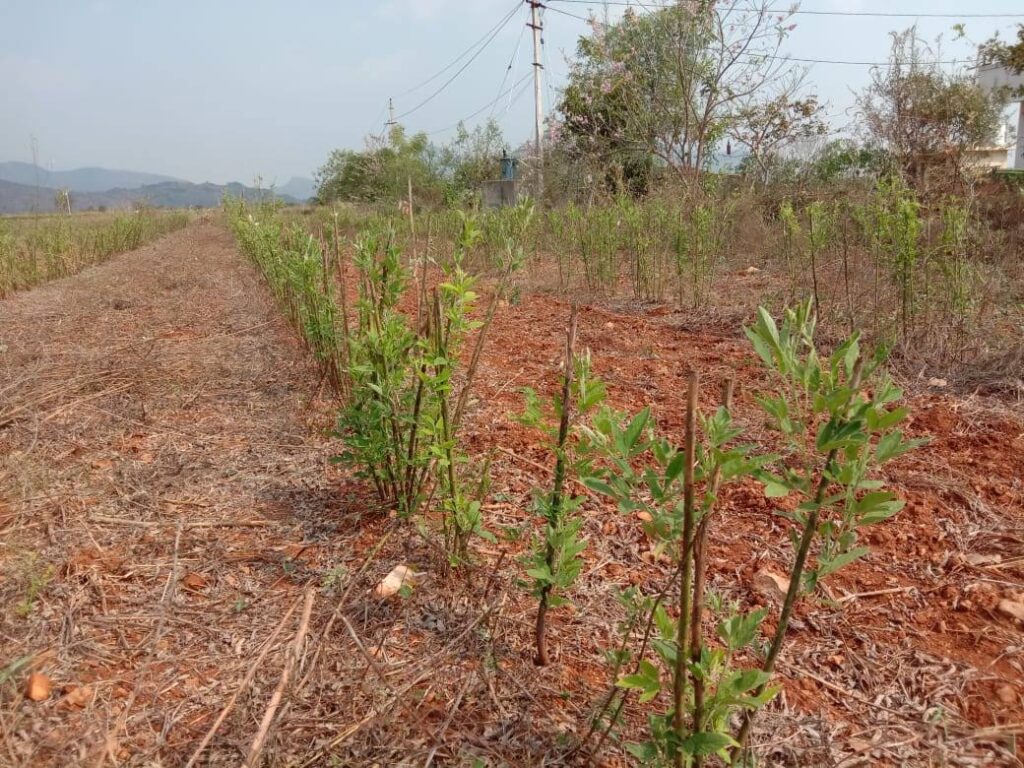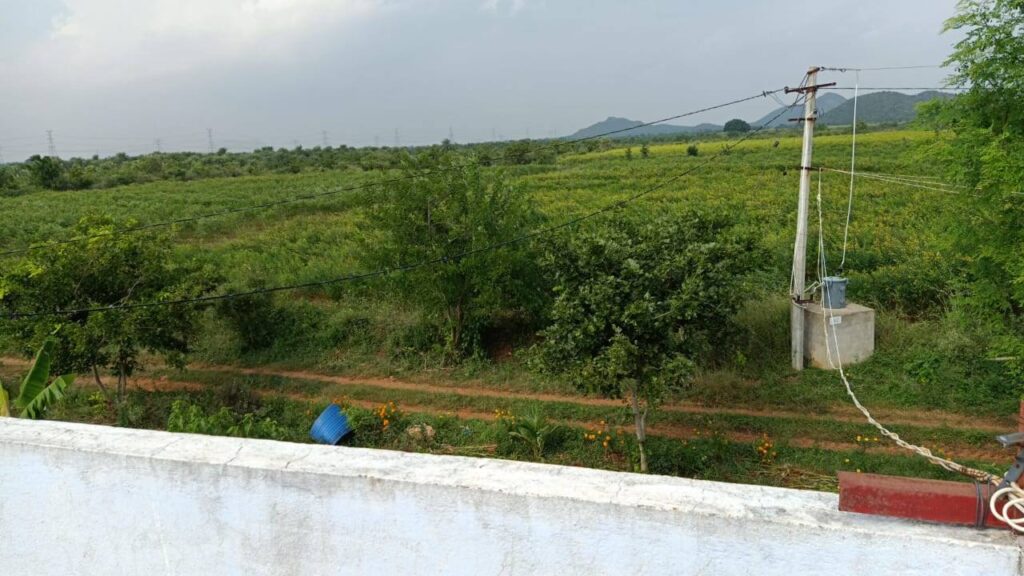Organic Rose Care: Effective Treatment and Prevention of Black Spot Fungus (Diplocarpon rosae) in Your Garden
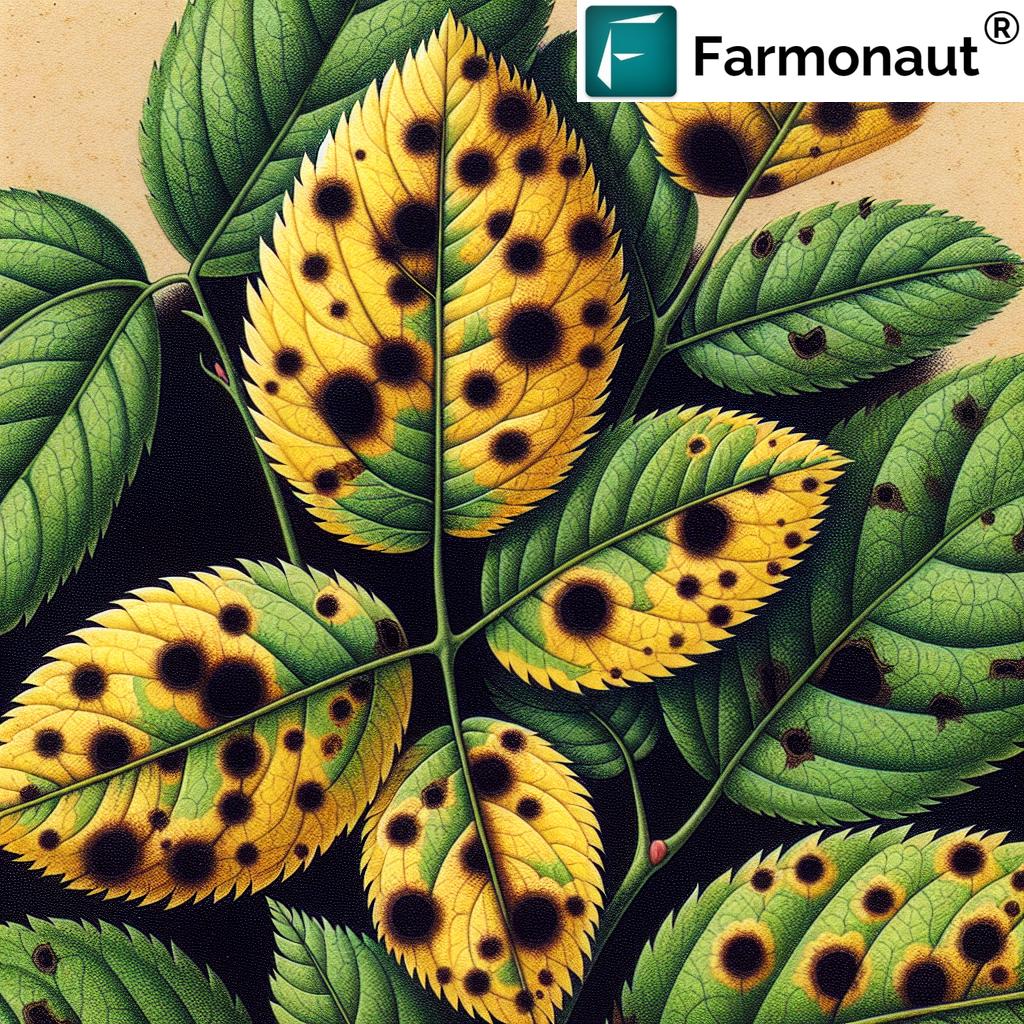
As passionate rose gardeners, we understand the joy and beauty that these stunning flowers bring to our gardens. However, with the pleasure of growing roses comes the responsibility of protecting them from various pests and diseases. One of the most common and troublesome issues that rose enthusiasts face is the black spot fungus, scientifically known as Diplocarpon rosae. In this comprehensive guide, we’ll explore effective organic treatments and prevention methods to keep your roses healthy and vibrant throughout the growing season.
Understanding Black Spot Fungus (Diplocarpon rosae)
Before we delve into treatment options, it’s crucial to understand the nature of this persistent fungal disease.
- Scientific name: Diplocarpon rosae
- Host plants: Primarily affects roses (Rosa species)
- Symptoms: Circular black spots on leaves, yellowing, and premature leaf drop
- Favorable conditions: Warm, humid weather and poor air circulation
Black spot is a fungal disease that thrives in warm, humid conditions. It begins as small, circular black spots on the upper surface of leaves. As the infection progresses, the spots enlarge, and the surrounding leaf tissue turns yellow. Severely infected leaves may drop prematurely, weakening the plant and reducing its ability to produce beautiful blooms.
The Impact of Black Spot on Rose Plants
When left untreated, black spot can have severe consequences for your rose plants:
- Reduced photosynthesis due to leaf damage
- Weakened plant vigor
- Decreased flower production
- Increased susceptibility to other pests and diseases
- Potential plant death in severe cases
Given these potential impacts, it’s clear that effective management of black spot is crucial for maintaining healthy, beautiful roses in your garden.
Organic Treatment Options for Black Spot
As advocates for sustainable gardening practices, we recommend starting with organic treatment methods. These approaches are not only environmentally friendly but also safe for beneficial insects and other wildlife in your garden.
1. Baking Soda Solution
A simple yet effective organic fungicide can be made using common household ingredients:
- 1 tablespoon baking soda
- 1 tablespoon horticultural oil or liquid soap
- 1 gallon of water
Mix these ingredients thoroughly and spray on affected plants, covering both the upper and lower leaf surfaces. Apply this solution every 7-10 days or after rain.
2. Neem Oil
Neem oil is a natural fungicide and insecticide derived from the neem tree. It’s particularly effective against black spot when used preventatively:
- Mix 2 tablespoons of neem oil with 1 gallon of water
- Add a few drops of liquid soap to help the solution stick to leaves
- Spray thoroughly on all plant surfaces every 7-14 days
3. Milk Spray
Surprisingly, milk can be an effective organic treatment for black spot:
- Mix 1 part milk with 2 parts water
- Spray on affected plants weekly
- The proteins in milk form a thin film on the leaves that inhibits fungal growth
4. Compost Tea
Compost tea not only nourishes your plants but also helps suppress fungal diseases:
- Steep well-aged compost in water for 24-48 hours
- Strain the liquid and dilute it 1:10 with water
- Apply as a foliar spray or soil drench weekly
Cultural Practices for Black Spot Prevention
Prevention is always better than cure when it comes to plant diseases. Here are some essential cultural practices to minimize the risk of black spot infection:
1. Proper Plant Spacing
Ensure adequate spacing between rose plants to promote good air circulation. This helps leaves dry quickly after rain or watering, reducing the favorable conditions for fungal growth.
2. Watering Techniques
- Water at the base of the plant, avoiding wetting the leaves
- Water early in the day to allow foliage to dry before evening
- Use drip irrigation or soaker hoses when possible
3. Sanitation
Proper sanitation is crucial in preventing the spread of black spot:
- Remove and destroy infected leaves promptly
- Clean up fallen leaves and plant debris regularly
- Avoid composting infected plant material
- Disinfect pruning tools between cuts with a solution of 1 part bleach to 9 parts water
4. Pruning for Air Circulation
Regular pruning helps maintain good air circulation within the plant canopy:
- Remove crossing or rubbing branches
- Thin out dense growth in the center of the plant
- Prune to maintain an open, vase-like structure
Choosing Resistant Rose Varieties
One of the most effective long-term strategies for managing black spot is to select rose varieties that are naturally resistant to the disease. While no rose is completely immune, many cultivars show improved resistance:
- Knock Out® series
- David Austin’s English Roses (e.g., ‘Graham Thomas’, ‘Mary Rose’)
- ‘Carefree Beauty’
- ‘William Baffin’
- ‘Bonica’
When selecting roses for your garden, research varieties that are well-suited to your climate and have demonstrated resistance to black spot in your region.
Organic Soil Amendments for Rose Health
Healthy plants are better equipped to resist disease. Improve your soil and boost plant immunity with these organic amendments:
1. Compost
Incorporate well-aged compost into your rose beds to improve soil structure, drainage, and nutrient content. Apply a 2-3 inch layer around plants annually, being careful not to pile it against the stems.
2. Mycorrhizal Fungi
These beneficial fungi form symbiotic relationships with plant roots, enhancing nutrient uptake and improving overall plant health. Add mycorrhizal inoculants when planting new roses or work them into the soil around established plants.
3. Seaweed Extract
Rich in micronutrients and growth-promoting compounds, seaweed extract can be applied as a foliar spray or soil drench to boost plant vigor and disease resistance.
Integrated Pest Management (IPM) for Black Spot Control
An integrated approach combining various methods often yields the best results in managing black spot:
- Monitor plants regularly for early signs of infection
- Implement cultural practices to create an unfavorable environment for the fungus
- Use organic treatments at the first sign of disease
- Rotate between different organic fungicides to prevent resistance
- Consider resistant varieties when replacing or adding new roses
The Role of Technology in Rose Disease Management
In today’s digital age, technology plays an increasingly important role in plant disease management. At Farmonaut, we leverage advanced satellite imagery and AI-powered analytics to help gardeners and farmers monitor plant health on a large scale.
Satellite-Based Crop Health Monitoring
Our satellite-based crop health monitoring system can detect early signs of stress in rose plantations, potentially indicating the onset of diseases like black spot. This technology allows for:
- Early detection of plant stress
- Targeted treatment application
- Reduced chemical usage
- Improved overall plant health management
While particularly useful for large-scale rose growers, this technology can also benefit smaller gardens by providing valuable insights into plant health trends and potential disease outbreaks in the local area.
| Feature | Traditional Methods | Farmonaut Satellite System |
|---|---|---|
| Detection Speed | Slow – Relies on visual inspection | Fast – Can detect early signs before visible symptoms appear |
| Accuracy | Variable – Depends on inspector’s expertise | High – Uses advanced spectral analysis |
| Coverage Area | Limited – Time-consuming for large areas | Extensive – Can monitor large rose gardens efficiently |
| Cost-effectiveness | Labor-intensive for large areas | Highly cost-effective for large-scale monitoring |
To learn more about how Farmonaut’s technology can help in managing rose gardens and other crops, visit our application page or explore our API documentation.
Conventional Chemical Treatments
While we advocate for organic methods, there may be situations where conventional fungicides are necessary, especially in severe infections or large-scale commercial operations. Some effective chemical fungicides for black spot control include:
- Chlorothalonil
- Myclobutanil
- Trifloxystrobin
- Tebuconazole
Important: Always follow label instructions carefully when using chemical fungicides. Rotate between different classes of fungicides to prevent the development of resistant fungal strains.
Seasonal Care for Black Spot Prevention
Effective black spot management requires year-round attention. Here’s a seasonal guide to help keep your roses healthy:
Spring
- Clean up any remaining winter debris
- Apply a fresh layer of mulch around plants
- Begin preventative organic spray treatments
- Prune to improve air circulation
Summer
- Monitor plants closely for signs of infection
- Continue regular organic treatments
- Water deeply but infrequently, avoiding leaf wetness
- Remove any infected leaves promptly
Fall
- Clean up fallen leaves and plant debris thoroughly
- Apply compost or well-rotted manure around plants
- Prune out any diseased canes
Winter
- Prune roses for shape and to remove any remaining diseased material
- Apply dormant oil spray to suffocate overwintering fungal spores
- Plan for resistant varieties to add in the coming season
The Importance of Biodiversity in Rose Gardens
Creating a diverse garden ecosystem can significantly contribute to the overall health of your roses and reduce the impact of diseases like black spot. Consider these strategies:
- Companion planting: Grow plants that attract beneficial insects, such as marigolds, lavender, and yarrow
- Polyculture: Mix different rose varieties with other flowering plants to reduce disease spread
- Beneficial insects: Encourage ladybugs, lacewings, and parasitic wasps, which prey on pests that can weaken roses and make them more susceptible to disease
Organic Foliar Feeds for Strengthening Rose Plants
Regular application of organic foliar feeds can boost plant health and increase resistance to diseases like black spot. Try these natural options:
- Comfrey tea: Rich in potassium, promotes strong cell walls
- Fish emulsion: High in nitrogen, encourages healthy leaf growth
- Kelp extract: Contains trace minerals and growth hormones
Apply these foliar feeds every 2-3 weeks during the growing season for best results.
The Role of pH in Black Spot Management
Soil pH can influence the susceptibility of roses to black spot. Roses prefer slightly acidic soil with a pH between 6.0 and 6.5. In this range, nutrients are more readily available, and plants are better equipped to resist disease.
- Test your soil pH annually
- Adjust pH with organic amendments like sulfur (to lower pH) or lime (to raise pH)
- Use pH-appropriate fertilizers to maintain optimal soil conditions
Advanced Organic Treatments for Severe Infections
In cases of severe black spot infection, more intensive organic treatments may be necessary:
1. Hydrogen Peroxide Solution
- Mix 4 tablespoons of 3% hydrogen peroxide per 1 quart of water
- Spray on affected plants, ensuring complete coverage
- Repeat every 3-5 days until symptoms subside
2. Garlic and Pepper Spray
- Blend 2 bulbs of garlic and 2 hot peppers with 1 quart of water
- Strain and dilute with 1 gallon of water
- Add 1 tablespoon of liquid soap
- Apply weekly as a preventative measure
3. Potassium Bicarbonate
- Mix 1 tablespoon of potassium bicarbonate with 1 quart of water
- Add a few drops of liquid soap
- Spray on plants every 7-10 days
Harnessing Technology for Precision Rose Care
At Farmonaut, we believe in leveraging technology to enhance plant care practices. Our advanced solutions can significantly improve the management of rose gardens, especially in detecting and preventing diseases like black spot.
AI-Powered Advisory System
Our Jeevn AI advisory system provides personalized recommendations for rose care based on real-time data:
- Customized treatment schedules based on local weather conditions
- Early warning alerts for potential disease outbreaks
- Optimized watering and fertilization recommendations
To experience the benefits of AI-driven rose care, download our app:
Weather API for Precision Timing
Timing is crucial in black spot prevention. Our Weather API provides accurate, location-specific forecasts to help you time your treatments effectively:
- Hourly and daily weather forecasts
- Precipitation predictions
- Humidity levels and dew point information
Developers and businesses can integrate our Weather API into their own rose care applications. For more information, visit our API documentation.
Community Engagement in Rose Disease Management
Engaging with your local gardening community can be invaluable in managing rose diseases:
- Join local rose societies or gardening clubs
- Participate in community garden projects
- Attend workshops and seminars on organic rose care
- Share experiences and learn from fellow rose enthusiasts
By collaborating with others, you can stay informed about local disease trends and share effective management strategies.
Conclusion: A Holistic Approach to Rose Health
Managing black spot and maintaining healthy roses requires a comprehensive, year-round approach. By combining organic treatments, cultural practices, resistant varieties, and innovative technologies, we can create thriving rose gardens that are resilient to diseases like black spot.
Remember, healthy plants are naturally more resistant to pests and diseases. Focus on building soil health, maintaining proper cultural practices, and leveraging technology to monitor and respond to potential issues quickly. With dedication and the right tools, you can enjoy beautiful, vibrant roses season after season.
At Farmonaut, we’re committed to supporting gardeners and farmers with cutting-edge solutions for plant health management. Explore our services to see how we can help you take your rose care to the next level.
FAQs
Q1: Can black spot fungus spread to other plants in my garden?
A: While black spot (Diplocarpon rosae) primarily affects roses, it can occasionally infect other plants in the Rosaceae family. However, it’s most commonly a problem for roses.
Q2: How often should I apply organic treatments for black spot prevention?
A: For prevention, apply organic treatments every 7-14 days during the growing season, or more frequently during humid weather or after rain.
Q3: Is it safe to compost rose leaves infected with black spot?
A: It’s generally not recommended to compost infected rose leaves, as the fungal spores can survive the composting process and potentially reinfect plants.
Q4: Can I use milk straight from the refrigerator for the milk spray treatment?
A: Yes, you can use fresh milk from the refrigerator. Both whole milk and skim milk are effective, but avoid using spoiled milk.
Q5: How does Farmonaut’s technology help in managing rose diseases?
A: Farmonaut’s satellite-based crop health monitoring can detect early signs of plant stress, potentially indicating disease onset. Our AI advisory system provides personalized care recommendations, and our Weather API helps in timing treatments effectively.
Q6: Are there any natural predators that can help control black spot fungus?
A: While there are no natural predators that directly control black spot fungus, beneficial insects can help maintain overall plant health, making roses more resistant to diseases.
Q7: How long does it take to see results from organic black spot treatments?
A: Results can vary, but you may start seeing improvements within 1-2 weeks of consistent treatment. However, severely infected leaves may not recover and should be removed.
Q8: Can overhead watering contribute to black spot infections?
A: Yes, overhead watering can create favorable conditions for black spot by wetting the leaves. It’s best to water at the base of the plant or use drip irrigation.
Q9: Are heirloom roses more susceptible to black spot than modern varieties?
A: Many heirloom roses are indeed more susceptible to black spot. Modern breeding programs have focused on developing disease-resistant varieties.
Q10: How can I use Farmonaut’s services for my home rose garden?
A: While our satellite monitoring is most beneficial for larger areas, home gardeners can benefit from our AI advisory system and Weather API through our mobile app. These tools provide personalized care recommendations and help in timing treatments effectively.


